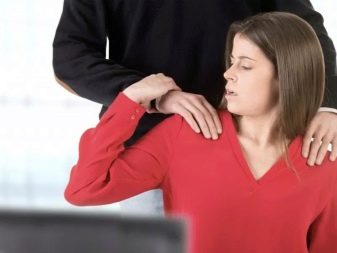Types of haptophobia and methods of struggle

Haptophobia is one of the most uncomfortable phobias, which significantly complicates a person's life and socialization in society. The patient experiences severe uncontrollable fear or even panic attacks from touching other people. In this article, you will learn why such a phobia can appear, how it is diagnosed and what treatment options are available.
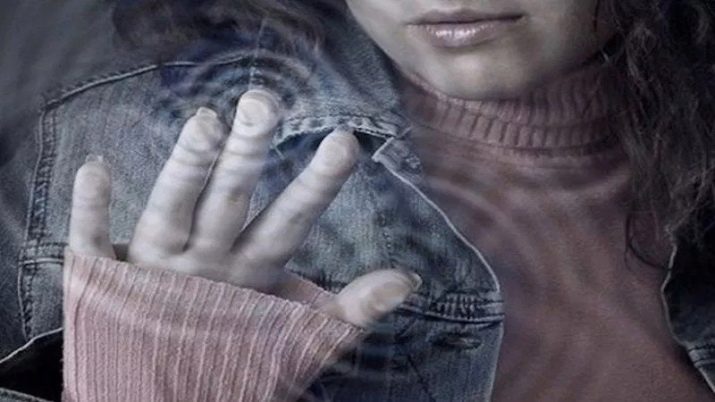
What it is?
Haptophobia is called fear of touching strangers, and in rare cases, of any touch in principle. Sometimes this disease is also called tactilophobia. It should be noted that according to the data of the world psychological and psychiatric practice, this pathology is one of the most rare phobias. Often, uncontrollable fear manifests itself in relation to the touch of strangers, but sometimes tactile contact with friends and family also causes panic.
Even accidental touches of other people generate significant discomfort. for example, on public transport. This diagnosis significantly reduces the quality of human life and entails serious consequences, up to complete isolation.
At risk are people with autism: haptophobia is one of the side effects of this deviation.
Haptophobia is associated with the establishment of personal boundaries and the violation of a person's personal space. For example, any healthy person is uncomfortable if the interlocutor comes too close, only the distance that is considered too close will differ for each person. A haptophobe has a very narrow personal space, and the reaction to its violation is aggravated. If, in a healthy person, casual tactile contact with a stranger causes only a slight dislike, then a person with a phobia may start to panic.

Causes of occurrence
In psychology, it is customary to divide the causes of a phobia into internal and external: the first category includes the features of our perception, regardless of the environment, and the second category includes all environmental factors.
It should be borne in mind that it is often difficult to single out one reason, there may be several. However, for more effective treatment, a specialist - a psychologist or psychotherapist - always tries to isolate the dominant cause.
Among the internal reasons, first of all, they consider character traits. There are people who are naturally prone to haptophobia: they are usually reserved, shy people, immersed in themselves, with pronounced introversion. They tend to perceive others as enemies, respectively, such people perceive any violation of personal space very sharply. Sometimes haptophobia appears due to nervous tension or temporary aggression.
Chronic diseases of the nervous system and organic brain damage can also lead to a fear of touch. Treatment in such cases is especially difficult, but these situations are extremely rare. Besides, sometimes lack of tolerance towards certain social groups, for example, racist beliefs, is noted among the reasons. In addition, women sometimes experience panic when touched by men.

If haptophobia is caused by internal causes, it can be inherited and psychologists know a lot of such cases. The geneticist plays a role here, because we inherit character traits from our parents. In turn, certain character traits can give rise to a predisposition to the fear of touch - it may never manifest itself in a lifetime, or it may manifest itself under unfavorable external conditions.
External reasons are also very diverse. For example, a negative experience can lead to haptophobia, for example, the experience of violence makes you acutely perceive any touch. It can be domestic or sexual abuse.
Childhood trauma, for example, if a child has been beaten, especially affects the possibility of a phobia.
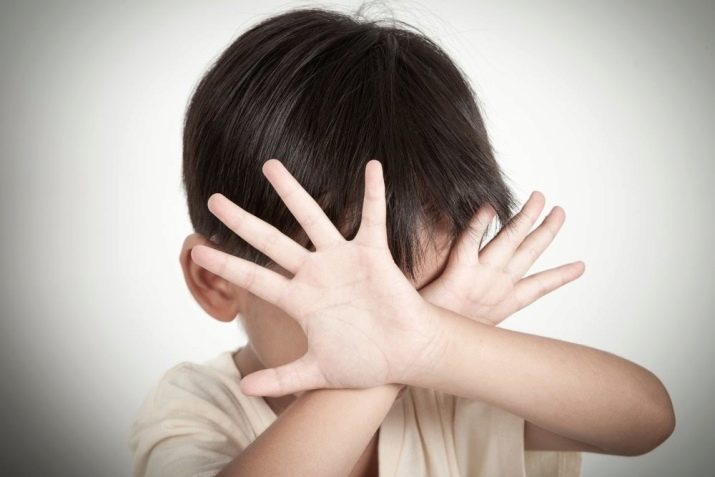
Psychoses and neuroses caused by external factors can also play a significant role in the emergence and development of phobia. They can appear from hard work, big life turmoil, loss, mental or physical stress. In turn, psychoses and neuroses make a person psychologically susceptible, excitable and vulnerable, so the invasion of personal space is perceived much more acutely. In such cases, it is useless to deal with the phobia separately - it is necessary to treat psychosis or neurosis. That is why it is important to contact competent doctors who can make a diagnosis as accurately as possible.
People with disabilities also tend to be wary of touching others. Sometimes their phobia can even develop into aggression. In addition, some professions have been associated with haptophobia: for example, dermatologists who know everything about skin diseases often react very sharply to tactile contact with strangers - in some cases this can result in a full-fledged phobia.
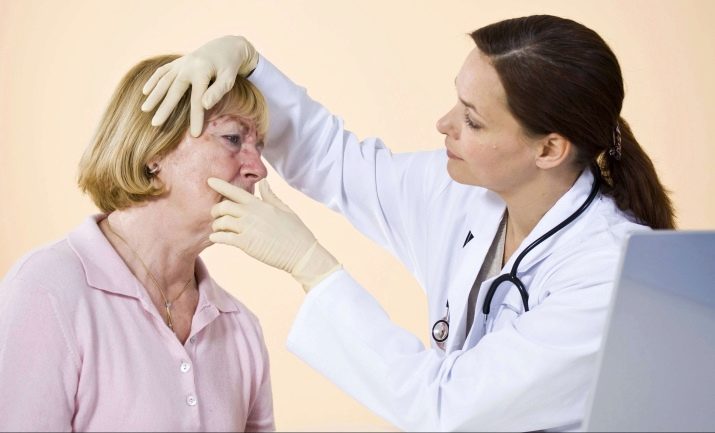
The main signs
In big cities, we are faced with accidental touching inevitably and daily, so no special test for haptophobia is needed. If you are afraid of being touched, it will certainly help define a trip on public transport. In a haptophobe, approaching other passengers already causes fear and a lot of negative emotions, because in such cases the risk of touching is very high.
When touched directly, the discomfort is maximized up to physical pain - outwardly, some have a noticeable panic attack, and some look restrained, but are experiencing serious nervous shocks.
Haptophobes recognize that their phobia is not socially approved, so they try to hide their negative emotions in every possible way and to restrain the external manifestations of your phobia as much as possible: some are more successful at it, some are less successful. Sometimes a haptophobe can be easily identified by facial expressions and harsh gestures. They are accompanied by an unexpected touch.

The symptoms of haptophobia are as follows:
- uncontrollable shivering, goosebumps all over the body directly when touched or in a large crowd of people;
- heart palpitations and increased blood pressure - another symptom of haptophobia, associated with a rise in adrenaline levels from intense fear;
- some patients have excessive sweating;
- sometimes touching can be accompanied by cramps, burning sensations, or pain.
Haptophobia very quickly leads to social isolation, physical, mental and moral degradation of the personality, therefore treating a phobia is best done early.
The haptophobe will avoid people in general due to the fear of touch, over time, patients begin to lead an asocial lifestyle. A person diligently avoids communication, hugs, sexual contacts, and physical distance entails mental distance, even from close people.

Forms of manifestations
Phobia can manifest itself in different forms and have different stages. At its worst, and quite popular, the fear of touch extends to all people. This is a casual passer-by on the street, and a relative, and a colleague, and a loved one. In this case, obsessive fear has very serious consequences for the patient's social life: the phobia prompts a person to gradually shield himself from everyone around him and completely withdraw into himself. This, of course, is harmful for further mental health, and for personal development and socialization.
Often, haptophobia only affects strangers. This form can be considered easier, since it allows the patient not to break off contacts with loved ones. Nevertheless, in everyday life, even such a phobia causes a lot of inconvenience. Healthy people do not even notice how many casual touches surround us every day: the need to transfer money to a cashier in a store or to travel in a full bus for a haptophobe will become a real stress. Constant stress, in turn, is harmful to health and can even provoke somatic diseases.
The most rare form of haptophobia is the fear of being touched by specific categories of people. For example, it can be a fear depending on gender, age or nationality.
Most often, such a directed nature of the phobia is in the case of acquired injuries - in childhood or adulthood. For the treatment of haptophobia in this form, it is important to find out the exact cause and deal with all the consequences of the injury, not just the fear of touching.
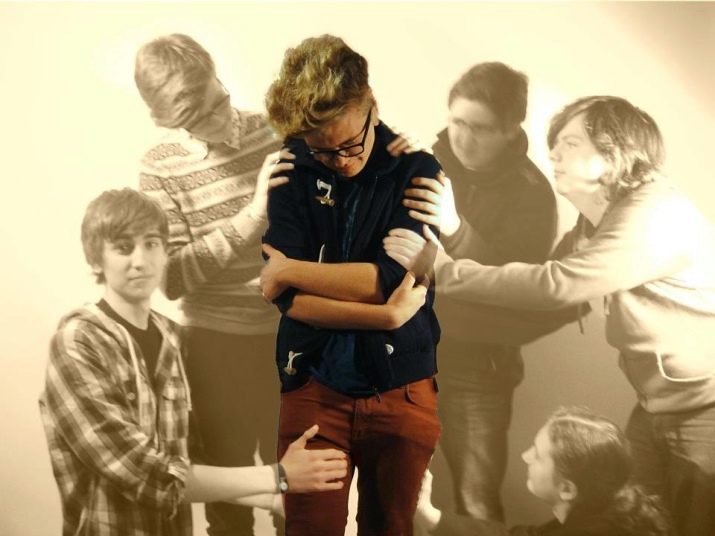
For any phobias, psychologists and psychiatrists distinguish 3 stages.
- The first includes mild discomfort and fear when touched, tolerant dislike - this is the easiest stage, with which some cope on their own. However, if the phobia is not prevented early, it often progresses very quickly.
- Attempts to move away from people, avoid contact and communication, and less likely to leave the house - these are alarm bells indicating that the phobia is serious. When touched directly, the patient experiences severe stress, which negatively affects the general well-being during the day. In such cases, you cannot do without the help of a specialized specialist.
- Finally, in its advanced stage, the phobia leads to complete social isolation. The patient refuses to leave the house and contact the outside world, anxiety and stress can have physiological manifestations.Phobia develops differently for everyone, so it is impossible to determine exactly at what point this stage will come - it is better to start fighting haptophobia as early as possible.
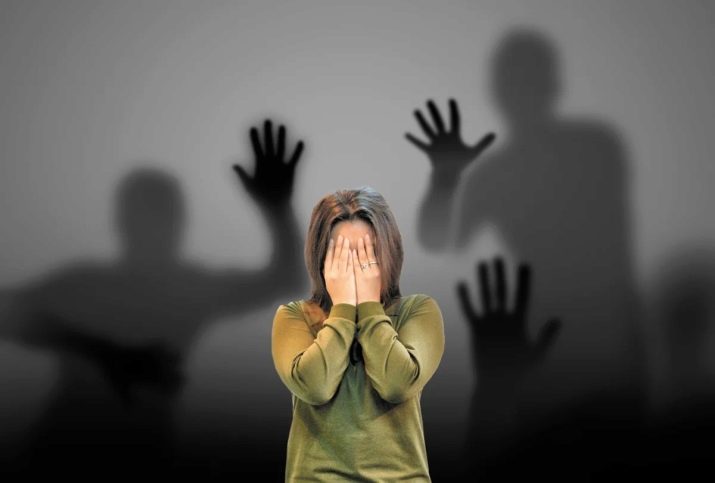
Ways to fight
Now in modern psychology and psychotherapy, it is possible to treat any phobias. Nevertheless, it is impossible to give a single recipe for how to cure haptophobia - this is a very broad term, and the specialist must understand the specific reasons in the patient that led to the fear of touch. Consider the most common methods used to deal with this phobia.
Psychotherapy
The time of therapy is determined by the doctor - sometimes it can be a rather long period, but with proper treatment and a positive attitude of the patient, the prognosis will be favorable. Very popular in the fight against such phobias that threaten social isolation is group therapy... First of all, the haptophobe will be able to realize that he is not alone with his problem. In a comfortable environment during the session, patients will be able to communicate and help each other overcome their fear. This method is highly effective for a wide variety of patient categories.
But also with the patients they carry out and individual sessionsaimed at combating fear and training personal qualities. Speaking of problems, their awareness, as well as finding the reasons are important in such work with a psychotherapist. It is important not only that the doctor makes the correct diagnosis, but also that the patient understands the problem and sincerely wants to solve it. Sometimes sessions can take place in the form of a free dialogue, and sometimes in a playful way - there are a lot of psychological techniques that allow you to gently deal with a phobia.
Hypnosis is another effective therapy. It is used with patients at various stages. During a hypnotic session, the doctor influences the subconscious and helps to establish the necessary settings.


Use of medications
Sometimes the doctor will prescribe special medications to treat difficult cases of haptophobia. Among them:
- antidepressants to normalize the psychological and emotional state;
- hormonal agents needed for hormonal disruptions;
- sedatives to calm and prevent panic attacks;
- benzodiazepines, which inhibit nervous excitement;
- antipsychotics with a sedative effect.
The above drugs should be taken only with the recommendation of a doctor and under his strict control.
If you diagnose yourself and decide to take pills, this can lead to even more serious negative consequences. For consumption without a doctor's recommendation, it is worth considering only all kinds of dietary supplements, vitamins, valerian and herbal teas.

Self help
With proper efforts, you can overcome haptophobia on your own - the main thing is to have a great desire, to realize the problem and enlist the support of loved ones. Psychologists recommend several ways.
- Breathing exercises - it is a great practice to calm the nerves. Take 15 minutes a day and try to breathe deeply and correctly. If you do not want to touch, also try to remain calm and breathe deeply - do not allow yourself to panic.
- Eat a healthy diet. Our psychology depends a lot on biochemical processes in the body. If your cells receive all the nutrients they need, they will more quickly bounce back and you will have better self-control.
- Practice meditation and yoga Is another great way to relax and feel your body.
- Sports can also help - during intense workouts, we burn out excess adrenaline and produce the hormone of joy endorphin.
- Try to think logically - there is nothing terrible in the touch of people. Try to convince yourself of this: don't shut yourself off from the problem, let people touch you, and try to be neutral about it.


Prevention of seizures
Of course, everyone wants to avoid this and try not to get sick with haptophobia. The nature of this diagnosis is extremely controversial, although many advise to lead an active social life to prevent the occurrence of a phobia. If you already have a phobia, even in the very early stages, seizure prevention can be provided. With time a calm attitude to touch will become a habit.
Try to breathe deeply, relax your muscles if you feel that you will have an attack soon. Convince yourself that those around you are not enemies and have no purpose to harm - after all, this is so. Ask a loved one to gently restore tactile contact with you, hug more often, do massage - over time, when it becomes comfortable, the touch of strangers will also be perceived less acutely.

